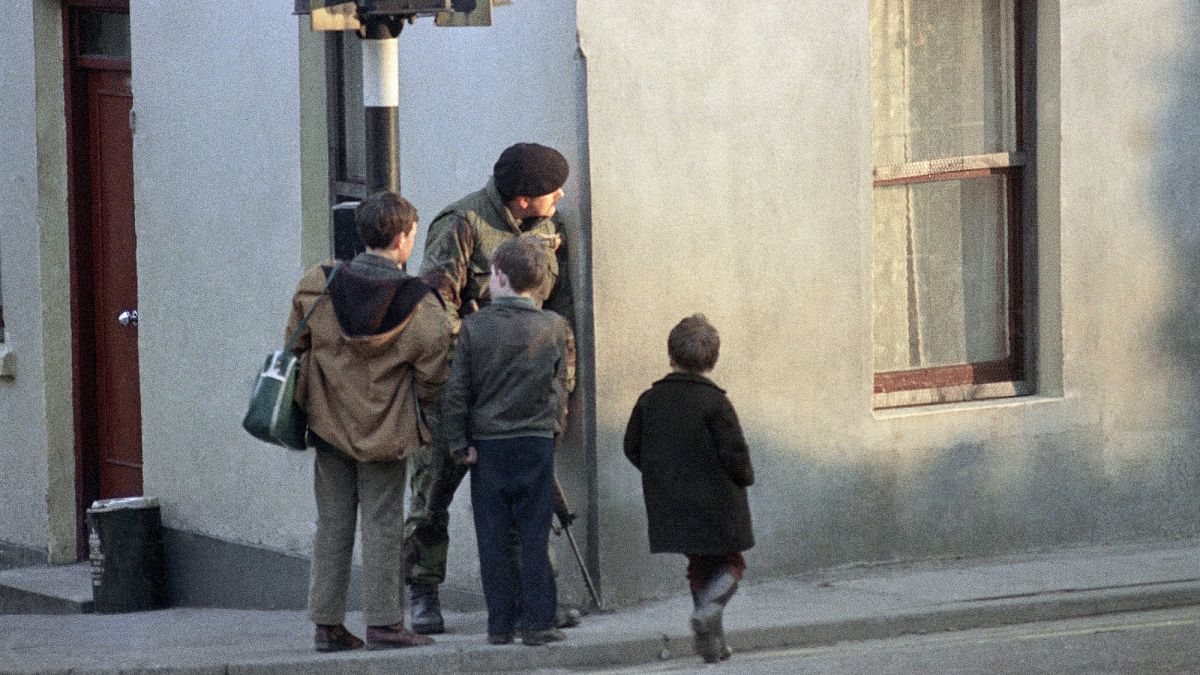Published on
The only British soldier charged with murder over the 1972 Bloody Sunday massacre in Northern Ireland went on trial Monday in Belfast in a case that has come to symbolise the three decades of violence known as the Troubles.
The ex-paratrooper — known as Soldier F under a court anonymity order — is accused of murdering James Wray and William McKinney and attempting to murder five others on 30 January 1972, in Londonderry/Derry.
Members of a British army regiment opened fire on unarmed Catholic civil rights demonstrators in the city, killing 13 people and wounding 15 others that day.
It was the deadliest shooting of the long-running conflict between mainly Catholic supporters of a united Ireland and predominantly Protestant forces that wanted to remain part of the United Kingdom.
“The civilians … did not pose a threat to the soldiers and nor could the soldiers have believed that they did,” prosecutor Louis Mably said in an opening statement in Belfast Crown Court. “The civilians were unarmed and they were simply shot as they ran away.”
Soldier F — who has pleaded not guilty to all charges — was concealed behind a blue curtain that shielded him from view in order to protect his identity.
While the conflict largely ended with the 1998 Good Friday peace accord that created a system for Republican and Unionist parties to share power in Northern Ireland, tensions remain.
Families of civilians killed continue to seek justice and supporters of army veterans complain that their losses have been downplayed and that they have been unfairly targeted in investigations.
How did Soldier F end up on trial for murder?
The fact that it has taken more than 50 years for a trial to get under way reflects the tortured history of the shooting.
The British government apologised in 2010 for the “unjustified and unjustifiable” killings after a judicial inquiry found that soldiers had fired at unarmed civilians fleeing and then lied about it for decades.
That cleared the way for the eventual prosecution of Soldier F, although it took seven years from the time police opened their investigation until prosecutors announced charges in 2019.
Two years later — in 2021 — prosecutors dropped the case. They made the decision after a judge tossed out a case against two soldiers in the killing of an Irish Republican Army leader, having ruled that key prosecution evidence was inadmissible.
The prosecution against Soldier F was revived in 2022 after McKinney’s family won an appeal at Northern Ireland’s High Court.
‘Lost control of themselves’
Prosecutor Mably said in court on Monday that while it was not possible to identify who shot each of the victims, the prosecution’s theory is that Soldier F and others from his battalion had joint responsibility when they pulled the triggers of their self-loading rifles.
“These soldiers lost control of themselves,” said Mably, adding that they had “disgraced the British Army”.
In an interview with police in 2016, Soldier F declined to answer questions, saying he had no “reliable recollection” of the events that day but was sure he had properly discharged his duties as a soldier.
Three of the survivors are expected to testify in the weeks-long trial that resumes on Wednesday.
Families of the victims who have campaigned for more than half a century for accountability for the killings marched to the courthouse before the trial on Monday, carrying photos of the dead and walking behind a banner reading “Towards Justice”.
“It has taken 53 years to get to this point, and we have battled all the odds to get here,” said John McKinney, whose brother William was killed in the shooting.
“Everything that we have achieved to this point has been through relentless commitment and a refusal to lie down,” he said on Monday morning.
“We will shortly occupy a courtroom very proudly with our heads held high and in the knowledge that, regardless of the ultimate outcome, that we are on the right side of history.”
Additional sources • AP

